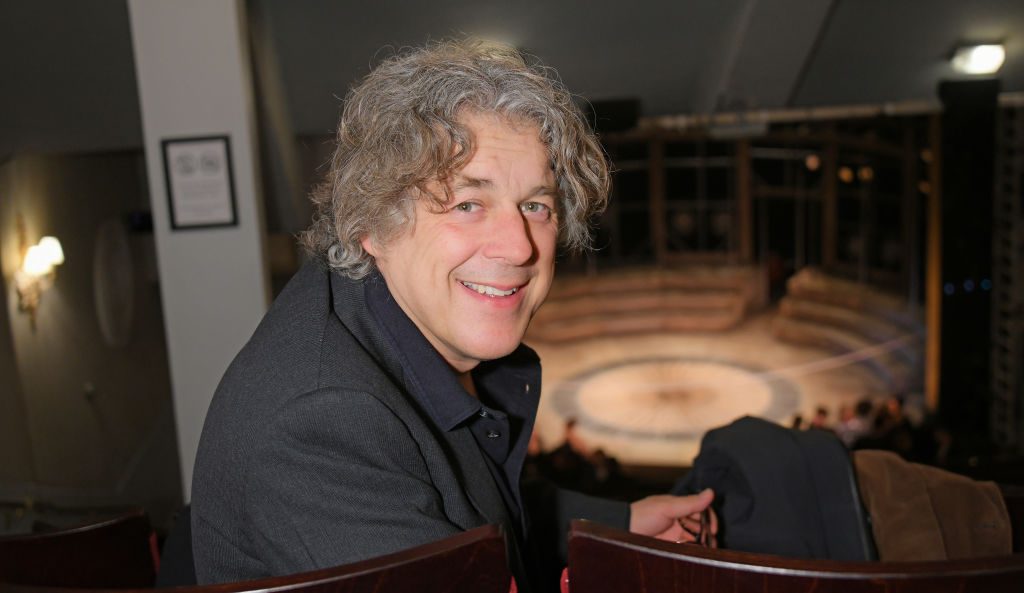On Sunday, comedian Alan Davies condemned what he called the “appropriation” of the Union Flag by activists during Operation Raise the Colors. It is yet another example of the cultural disconnect between progressive celebrities and the patriotic “small-c” conservatism of much of the wider British public.
Speaking at the Cheltenham Literature Festival, Davies said: “I hate the appropriation of patriotism and I hate this idea that if you find it uncomfortable it feels like dog-whistle racism so much.” He added: “I hate this idea that you can just stop people coming.”
Davies’s comments follow those made by former England and Manchester United footballer Gary Neville, who — quite bizarrely — said in the aftermath of the deadly Islamist terrorist attack at a Manchester synagogue that “angry, middle-aged white men” were dividing the country by “using the Union Flag in a negative fashion”. Now a hotel magnate, Neville proudly boasted of “instantly” removing a flag that a contractor had erected at one of his building sites in Manchester.
With immigration and multiculturalism remaining inescapable topics in British political discourse, the fundamental chasm between the liberal-minded “celebrity class” and much of the general population is starker than ever. Davies’s intervention on the so-called appropriation of the Union Flag is a form of “sanctioned patriotism” in more progressive circles, that even mild patriotic expressions of national pride in the public sphere can be considered beyond the pale.
A notorious example of this was the Labour MP for Islington South and Finsbury, Emily Thornberry, who snobbishly posted a photo of a house in Kent which was draped in the St George’s Flag with a white van parked in the driveway. More recently, York Central MP Rachel Maskell called for the immediate removal of flags put up in the city, saying they were being used by some “to rally those who suppress the rights of others and perpetrate acts of hate”. Maskell, who was suspended from the Labour Party earlier this year, is infamous for another tone-deaf speech saying that Britain must continue accepting immigrants “until we are at saturation point”.
While what Davies said is hardly surprising for a North London comedian, Neville’s grandstanding was especially illuminating. He spoke with an air of self-appointed authority on matters of patriotism and national pride, but he refused to acknowledge the ideological and demographic background of the terrorist behind the Heaton Park attack: British-Syrian Jihad Al-Shamie, who was found to be motivated by an “extreme Islamist ideology”.
Though Davies voiced concerns about “Islamophobia”, with some justification, he overlooked Islamist extremism — Britain’s principal terror threat — while criticizing campaigns like Operation Raise the Colors. This hardly constitutes a serious intervention on the divisions shaping modern Britain.
The truth is that opinionated celebrities are largely insulated from the drawbacks of immigration, multiculturalism, and diversity in modern Britain. None are competing for limited public resources in relatively deprived areas which have experienced large inflows of international migrants. It can be safely said that both Davies and Neville have the personal finances to rely on private services if desired. Their relationship with immigration may be a positive one, but that is no doubt heavily reliant on their privilege and wealth.
These clumsy forays into matters of national identity are a gift for the likes of Reform UK. Nigel Farage’s party is riding high on the wave of anti-establishment sentiment over the social, cultural, and demographic impact of the so-called “Boriswave”. Much of Reform’s future success rests on not only differentiating itself from the mainstream political establishment, but also challenging celebrity figures who are totally out of step with the British public on matters of immigration, integration, and identity. Davies and Neville have done their part in helping Farage.











Join the discussion
Join like minded readers that support our journalism by becoming a paid subscriber
To join the discussion in the comments, become a paid subscriber.
Join like minded readers that support our journalism, read unlimited articles and enjoy other subscriber-only benefits.
Subscribe